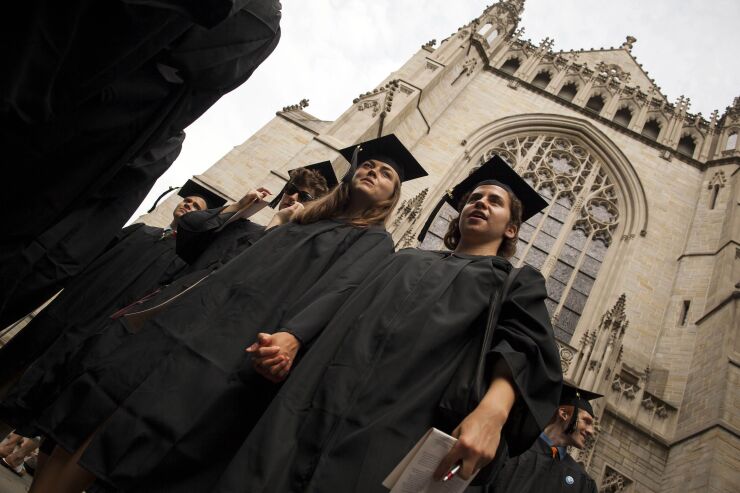Financial services provider TIAA has teamed up with social impact technology startup Savi, to provide nonprofit organizations with a student loan benefit solution for their employees.
The benefit is designed to help employees of nonprofit organizations reduce their monthly student loan payments immediately, and to qualify over time for relief from the balance of their federal student loans by enrolling in the federal Public Service Loan Forgiveness program. Employees can sign up for the benefit by answering questions about their financial status and then the Savi software determines potential savings with an income-driven repayment plan and whether the person may qualify for a forgiveness program.
“TIAA decided to partner with Savi with the goal of helping with the burden of student loan debt for employees and their family members,” says Snezana Zlatar, senior managing director of financial wellness and innovation at TIAA. “The goal is, by addressing this issue, to help employees achieve greater financial security and financial wellness.”
The Savi algorithm takes into account an employee’s specific circumstances, including their family and tax situation, and suggests a solution that best fits their needs. The service helps employees stay in compliance with the recurring paperwork requirements of the PSLF program and reduce errors. Savi also has a team that is available to answer questions and act as an advocate if needed.
The PSLF program was designed more than 10 years ago as a way to help employees who wanted to educate the public on personal finances. However, the complexity of the program has presented challenges for some borrowers due to difficulty in understanding the rules and managing the paperwork. Indeed, 98% of PSLF program applicants have been rejected for not meeting program requirements or due to missing or incomplete information on a form.
“Even the most diligent student loan borrowers face challenges navigating the confusing maze of federal student loan repayment and forgiveness options,” says Savi co-founder Aaron Smith. “After seeing the incredible impact during our pilot with TIAA, we are excited to expand to the broader TIAA community of client institutions and their employees."
TIAA and Savi conducted a pilot program of the benefit from July 2019 through March 2020 with seven nonprofit institutions, four in higher education and three in healthcare. Within that period, employees who signed up for the solution were on track to save an average of $1,700 a year in student debt payments. Some employees’ payments were cut in half and some employees had an average projected forgiveness of more than $50,000 upon successful completion of 120 months in the PSLF program. The program is now available to all TIAA employer clients.
Healthcare workers are facing pressures they’ve never expected as the coronavirus pandemic continues to persist and even worsen in some regions, with several U.S. states reporting an increase in cases. This benefit was designed with healthcare workers in mind, even prior to the outbreak, because of the higher than average student debt these individuals take on.
“More than 78% of healthcare workers reported over $100,000 in student loans,” Zlatar says. “According to some recent data, over 90% of healthcare workers expect that they will struggle to make their student loan payments in the next six months. This is really where our partnership comes into play.”
Over 44 million Americans are struggling with student loan debt, which has ballooned to more than $1.5 trillion total and is one of the country’s biggest consumer debt categories. An increasing number of employers have made offering student loan debt benefits a key way to recruit and retain young talent. Indeed, 8% of employers offer their staff a student loan benefit, which can alleviate employee stress and create a more loyal and productive worker.
Other employers offering student loan debt benefits include ServiceMaster, the parent company of pest control and termite exterminator business
“Many employees are distracted by their financial situation while at work,” Zlatar says. “They worry about their personal income security, but they also worry about debt, which is a significant issue for them. By helping to deliver a loan forgiveness solution we help the individual, and we also help employers because employees who have greater financial wellness also have a greater peace of mind and greater ability to engage more effectively in the workplace.”






